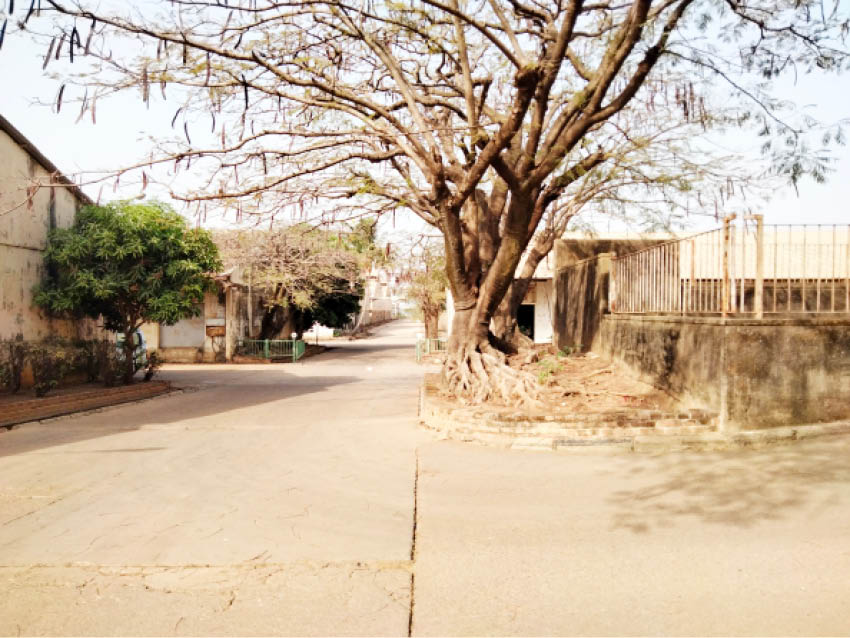United Nigerian Textile Limited (UNTL), the only textile company standing in Kaduna, appears to be on shaky ground with the disengagement of about 300 workers, which constitute 30 percent of its staff strength.
Dozens of textile factories have closed shop in Kaduna because of many factors, including an unfriendly environment occasioned by the dearth of equipment and cost of production.
Daily Trust reports that UNTL, the only surviving company in the sector was founded in 1964. It is composed of subsidiaries including Supertext, Funtua Textile, Zamfara Textile, Unitext and Nichem Text.
The company shut down operation in 2007 but re-opened in 2010, and has since been operating on shaky ground.
Yet again
In March 2020, UNTL once again shut down activities after a state-wide lockdown was imposed by the Kaduna State Government to curtail the spread of COVID-19.
Our correspondents gathered that pressure from the National Union of Textile Garment and Tailoring Workers of Nigeria (NUTGTWN) compelled the company to recall its workers in the last few weeks, which sources said led to a “restructuring” process.
While on a visit to the company in Kakuri, Kaduna South Local Government Area, workers told our correspondents that almost half of the company’s staff had been laid off in what the firm called “restructuring.”
One of the staff said all those affected had been invited to collect their entitlements, adding that the company was facing several challenges ranging from lack of raw materials to product imitations and poor patronage.
“It (retrenchment) is as a result of the general economic problem,” he said.
“This is the only surviving textile company in Kaduna and we cannot even get raw materials because the farmers are complaining that bandits won’t allow them to go to their farms.
“Some of the workers have been here for a while and they have been laid off. To pay workers has become difficult because there is no work to do and there are no raw materials to work with,” he said.

Another worker said the development would have a negative multiplier effect.
“The development will affect more than 1,000 people because all the workers have dependants including wives, children and parents.
“I am sure many will find it difficult to survive because who do you think will give them a job? I hope the federal and Kaduna State governments would do something to salvage the situation,” he said.
A list of workers laid off by the management of the company was pasted on the company’s notice board with over 200 names on it but sources said some names had not been pasted.
‘Only downsizing’
However, a senior member of the management team of the company told Daily Trust that the news circulating on social media that the company had shut down its operations permanently was false but confirmed that UNTL was downsizing.

The company’s General Manager, Sennator Walid Jibrin, who was ill at the time of the visit, however, said that staff were being paid their entitlements.
Jibrin, who is the chairman of the Board of Trustees of the People’s Democratic Party (PDP), said as soon as he recuperated, he would be able to speak with journalists on the issue.
UNTL’s heydays
The factory, which prides itself as the largest textile factory in West Africa, had on its payroll about 10,000 workers before it suspended production in 2007 as a result of unfavourable government policies.
Before the closure, the factory ran three shifts: morning, afternoon and night, as well as a permanent day shift for the administrative staff, making the textile communities busy even at night.
The closure of many factories around the location turned the Kaduna textile cluster, which hitherto used to be the most bubbling area in Kaduna city, into a shadow of its former self.
Three years later, UNTL reopened after accessing a loan facility from the federal government. It was a celebration galore on December 3, 2010, when the factory was reopened with the then Vice President Namadi Sambo in attendance.
The federal government had put in place N100 billion Cotton, Textile and Garment Development Fund through a bond issued by the Debt Management Office (DMO) in 2010.
Daily Trust reports that since it reopened in 2010, the company has been operating at low capacity when compared to the heyday of the textile industry in the country.
Challenges hindering sector
The National Union of Textile Garment and Tailoring Workers of Nigeria (NUTGTWN) said about 300 workers had been laid off out of UNTL’s about 800 workers.
The union stated that many of the workers saw it coming because the company had not been in production.
The National President of the union, Comrade John Adaji, said the downsizing had been the subject of discussion within the union but assured that it was doing everything possible to ensure that workers’ entitlements were paid.

He said with over 6,000 workers on direct jobs between 2003 and 2005 when he was a branch chairman of UNTL, the company was a shadow of what it used to be.
“Since the initial lockdown in March, the company had faced challenges in returning to production.
“It is sad because this is the only surviving textile company in Kaduna State and it is facing serious challenges.
“Not much is left for the workers as entitlements because the company shut down in 2007 before it reopened in 2010 and since then, it has been on a small-scale job,” he said.
According to Adaji, though the federal government’s Executive Order 003 compels government institutions to patronise the local sector, implementation remains a major challenge as most of the fabrics found in the market are imported.
He said apart from the scarcity of raw materials, another problem bedevilling the textile industry is production cost and imitation of products.
“You will see a fabric that is printed by UNTL and then some people will go ahead and imitate it and bring it into the country comfortably with no customs duty.
“You will find that 90 percent of the fabrics in the market are imported and if we are to implement Executive Order 003, then Nigerian security sector alone could sustain textile companies but this is not the case.”

How to revive sector
The Vice President of the Industrial Global Union (IGU), Comrade Issa Aremu, said that recent developments in UNTL mean more work needed to be done to revive the sector.
According to him, Nigeria has good cotton, textile and garment CTG policy but implementation requires all stakeholders.
“Industries are in the states, so all state governments must hit the ground running to address the problems of industrial development, not just textile.
“Beyond bailout, stop smuggling, buy locally produced fabrics through Executive Order 003 and put sustainable industrial policies. Key to mass sustainable jobs is industrialisation,” Aremu said.

 Join Daily Trust WhatsApp Community For Quick Access To News and Happenings Around You.
Join Daily Trust WhatsApp Community For Quick Access To News and Happenings Around You.


